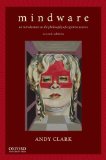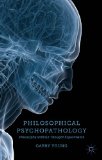new book – ‘Human Agency and Neural Causes: Philosophy of Action and the Neuroscience of Voluntary Agency’ by Jason D. Runyan
November 21, 2013
Human Agency and Neural Causes: Philosophy of Action and the Neuroscience of Voluntary Agency by Jason D. Runyan (Palgrave Macmillan, 2013)
Book description from the publisher:
In exploring whether our neuroscientific discoveries are consistent with the idea we are voluntary agents, Human Agency and Neural Causes presents a neuroscientifically-informed emergentist account of human agency.
In contrast with the assumptions that currently shape neuropsychological research on voluntary agency, J.D. Runyan presents a broadly-conceived Aristotelian account of voluntary agency grounded in our everyday thought about our conduct. In the process, some new concerns are raised for compatibilist theories of free will, as well as for reductive neuroscientific theory. This book argues that what contemporary neuroscience reveals is along the lines of what we should expect if we are, in fact, voluntary agents. At the same time, upholding the idea that we are voluntary agents will require profound and controversial changes in the way we interpret our neuroscientific findings.
Comments (0) - cognitive science,new books,philosophy of mind







